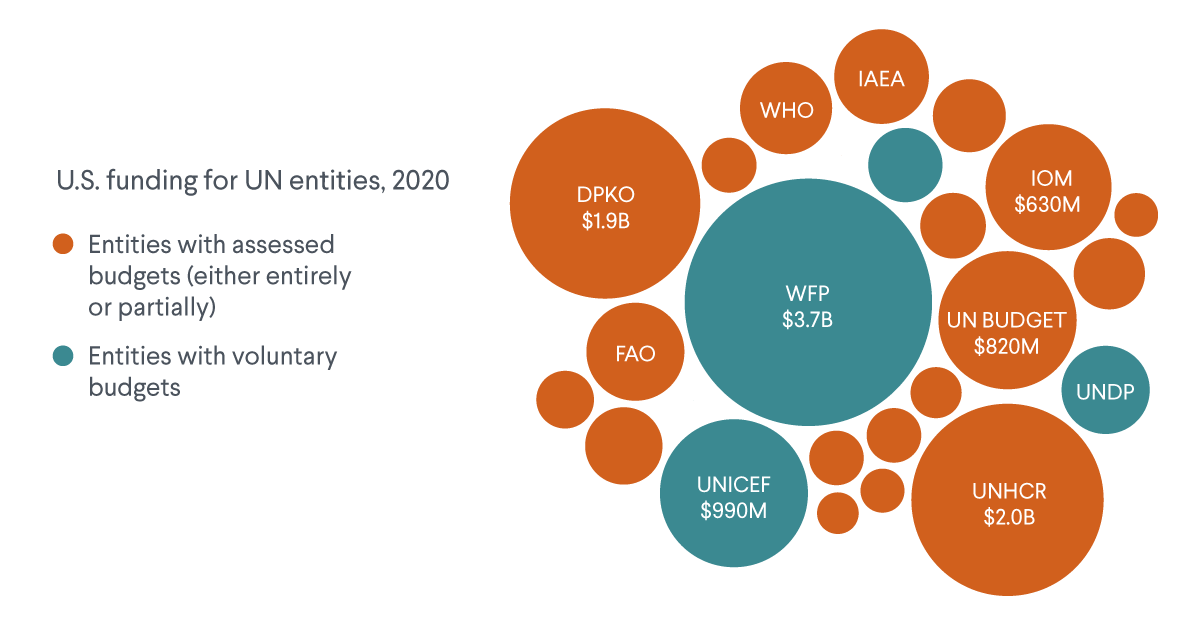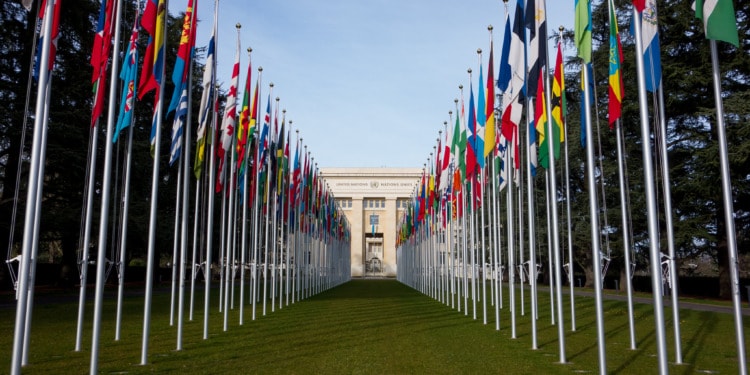Secretary-General António Guterres issued a statement this morning in recognition of UN Day, a celebration of the organisation that came into being 77 years ago today. In this speech he reflects upon the history of the intergovernmental body and, whilst the message starts and ends with references to hope, Guterres also seems to be calling attention to the challenges that have for some time now restricted the UN’s efficacy.
As the world rebuilt in the aftermath of World War II, the United Nations was founded Oct 24, 1945. It represented a coming together of nations with the shared aims of maintaining international peace and security whilst also promoting social progress.
As Guterres states, “the United Nations is the product of hope,” hope that through collective action and mutual support horrors like the Second World War could be prevented from recurring and nations could progress faster and further than ever before.
However, Guterres also uses his speech to highlight the need to “bring to life the values and principles of the UN Charter” and “rescue the Sustainable Development Goals.”
These linguistic choices are important. They present the UN as the “sick man” of world politics, incapable of achieving its clearly defined goals even though they are universally sustained and approved. They highlight the challenges the organisation is facing which are rendering it largely inert at a time of great international need.
Though these restrictions are myriad, perhaps the most problematic is the lack of funding that the UN secretariat and the organisation’s specialised agencies and programmes are currently suffering.

The US has been the UN’s largest financial contributor since its inception in 1945, but with many agencies relying solely on voluntary contributions, their power depends in large part on the whim of the President.
The Trump administration in particular saw agencies including UN Women, UNESCO, WHO, and UNICEF receiving slashed budgets.
Though Biden has now halted the planned US exit from WHO and resumed the US’s required payments to UNFPA and UNRWA, the gap between the incoming funding and what is required by the secretariat and its agencies is substantial.
This disparity is partially due to the current focus of the media, governments, and humanitarian organisations on Ukraine. This is a crisis that Western politicians fear for its ability to impact the security of their own countries, but as a result, aid agencies have been left with too little funding to address emergencies elsewhere.
There are, for example, reports of one person dying every 48 seconds in the Horn of Africa, where severe droughts and extreme food insecurity are estimated to be affecting over 37 million people. It is one of the worst hunger crises of the past 70 years, and yet only around 20% of appeals to address the situation have been met.
Related Articles: When Disaster Strikes Poor Communities: How the Private Sector Can Help | Cities and Climate Finance: Global Leaders Call for Less Interpreting, More Action
Ultimately, the current demand for funding humanitarian aid is massive and systematically unmet. Countries are facing conflicts and climate disasters on a scale completely new to us, and whilst donations from wealthy countries have grown over the past years, they remain out of line with what is required.
The UN agencies that protect children and battle global refugee, health, and food crises need $50.7 billion in 2022 to aid over 200 million people but as of yet, almost 11 months through the year, they have only received 37% of that total.
“This is the biggest funding gap we’ve ever seen, mostly because the number of vulnerable people who need support is increasing fast,” stated Martin Griffiths, chief of the UN’s humanitarian and emergency relief office.
📸: The original manuscript of the UN Charter preamble.
77 years ago, 50 nations came together in San Francisco, California to create a new organization for peace, prosperity & human rights.
Learn more about the Charter ahead of Monday's #UNDay: https://t.co/RjYS2t7aUD pic.twitter.com/Z80zVljnMj
— United Nations (@UN) October 23, 2022
Furthermore, despite the original design of the UN as a powerful political force, the organisation seems to now be lacking in almost any political presence on the international stage.
This problem was created and is perpetuated by Russia’s presence as one of the five permanent seat-holders on the UN Security Council.
The position, granted to Russia in the UN Charter of 1945, allows their representatives to veto the Council’s resolutions. This was recently exemplified when the Council attempted to condemn Russia’s attempts to unlawfully annex four regions of Ukraine as “a threat to international peace and security.”
Unfortunately this obstacle is particularly difficult to overcome, as the Council is unable to recommend Russia’s removal without Russia’s agreement.
The UN’s frozen political arm and stark lack of funding make the organisation’s aims of ending extreme poverty, safeguarding our planet, ensuring human rights for all, and attaining the SDGs appear further out of reach than ever.
Guterres’ call that we “renew our hope and conviction in what humanity can achieve when we work as one, in global solidarity” must be heard and acted upon. Funding must be increased to allow the United Nations, that is being “tested like never before,” to enact positive change at its full capacity.
Editor’s Note: The opinions expressed here by the authors are their own, not those of Impakter.com — In the Featured Photo: United Nations Office at Geneva. Featured Photo Credit: Falcon Photography.









